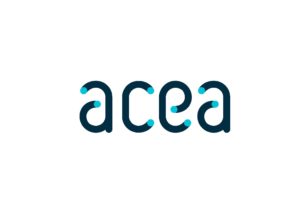
In May of this year, the 11th revision of the ACEA lubricant sequences came into effect. These are the new minimum quality level for oils by the European Automobile Manufacturers’ Association (ACEA) for vehicle manufacturers to use in their vehicles. This latest sequence replaces the last performance standard for heavy-duty engine oils which included emissions regulations for the European market in 2016. As before for any oil company or distributor to claim their products’ performance meets these ACEA sequences, the claim must be based on credible data and controlled tests in accredited test laboratories.
The 2022 sequences have created two new sequences, ACEA E8 and ACEA E11 which are to replace the ACEA E6 and ACEA E9 sequences. The ACEA E4 and ACEA E7 sequences are to remain but only to serve legacy engines. HGV Engine Oils since 1st May 2022 can now claim these new sequences once tested and as of 1st May 2023 these tests and claims will be mandatory on all HGV oils.
The 2022 upgrade includes a number of new tests to ensure better performance and longevity compared to ACEA E6 and ACEA E9 oils. The Volvo T-13 Engine Oil Oxidation test (ASTM D8048) has been included in both new sequences and requires an increased level of oxidative resistance performance in comparison to ACEA E6 and ACEA E9. For a lubricant claiming the new extra long drain intervals, protection from oxidation is essential as oxidation leads to the breakdown of the oil and damaging issues for the engine as a result. The Caterpillar C13 Engine Oil Aeration Test (ASTM D8047) is another of these important tests. This test evaluates the lubricant’s resistance to aeration, ensuring the formulation can resist air pockets/bubbles in the lubricant which would impede the lubricants’ ability to maintain the cooling and lubricity properties required. These and the other tests for these new sequences which raise the anti-oxidation performance and piston deposit levels from the previous ACEA E6 and ACEA E9 will now bring the European categories into line with the American Petroleum Institute’s API CK-4 specification.
ACEA E8 is recommended for highly-rated diesel engines meeting Euro I – Euro VI emission requirements operating under very severe conditions, such as significantly extended oil drain intervals. It is suitable for EGR engines, with or without particulate filters, and for engines fitted with SCR NOx reduction systems. E8 is strongly recommended for engines fitted with particulate filters, however as always engine manufacturers or driver manuals should be consulted before use.
ACEA E11 is also recommended for highly-rated diesel engines meeting Euro I – Euro VI emission requirements operating under very severe conditions. It is suitable for most EGR engines, with or without particulate filters, and for most engines fitted with SCR NOx reduction systems. E11 is strongly recommended for engines fitted with particulate filters, however as always engine manufacturers or driver manuals should be consulted before use.
Users will begin to see these new ACEA E8 and ACEA E11 sequences appearing on new oils launched to the market over the coming months as older ACEA E6 and ACEA E9 oils are removed or redeveloped. Whilst most oil companies and distributors will explain the new requirements to their customers it is important that customer are aware of the new categories especially after 1st May 2023 when the oil, they use for warranty work will need to have these new categories to meet claims. Oils still claiming the ACEA E6 or ACEA E9 or indeed even older sequences such as ACEA E5 or ACEA E2 which were removed a number of years ago after May 2023 should question their supplier and seek and up to date technical data sheet for that exact product.
As the Irish distributor of international Lubricant brands such as TotalEnergies and Petro Canada, Finol Oils are trusted advisors for all your lubricant needs. Managing director Sean Holland has said he welcomes these new sequences as an update on the lubricant performances to keep up to date with the latest developments by engine manufacturers to reduce emissions, improve fuel economy and allow for significantly extended drain intervals. Sean says that ‘It is the combination of improved fuel economy and longer drain intervals of these new generation lubricants, that will help fleet operators to reduce some of their costs as we move through a particularly difficult time of inflation in all costs.’ Sean also noted that ‘these are important new lubricants, as whilst advancements have been made with electric HGV engines now entering the market, Diesel HGV engines are still going to be around for the foreseeable and it is important that advancements are made to these engines and the lubricants for them to meet lower emissions and to handle the new diesel formulations now available or in testing.’
Talk to a member of Finol’s technical and sales team today to learn more about these new oils and how Finol are already helping their fleet customers reduce their fuel and maintenance costs over the past 18 months using their high-performance approved lubricant ranges.
Finol will be launching TotalEnergies’ latest HGV engine oils Rubia Optima 3500 10W-40 & Rubia Optima 3500 FE 5W-30 later in October which currently offers the API CK-4 specification as well as most of the main OEM approvals and will be shortly updated to the new ACEA sequences. For more details, call at 01 4555 484 or visit www.finol.ie
